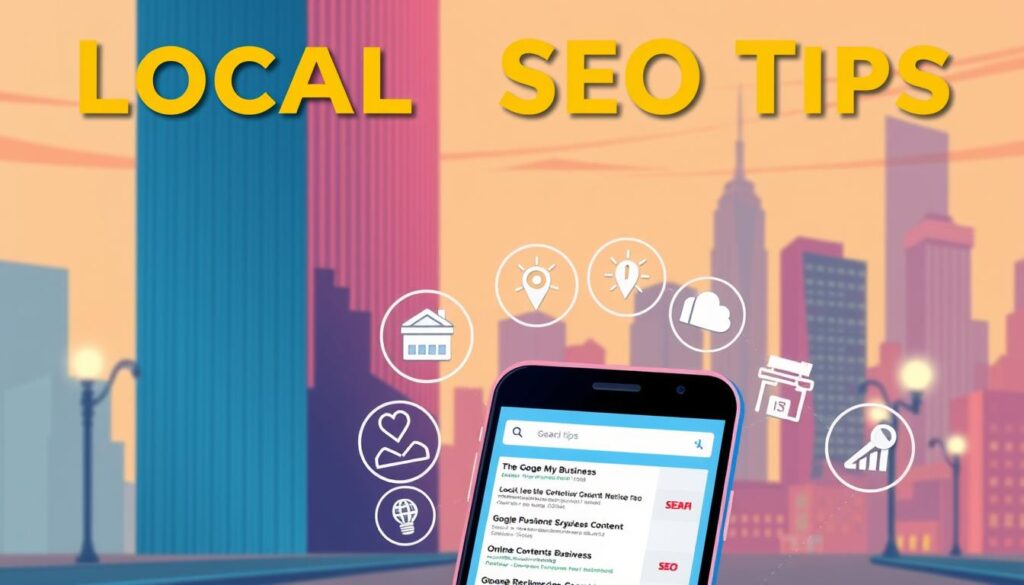Selecting the right PPC agency is crucial for your digital marketing success. A well-chosen agency can significantly enhance your online presence and drive measurable results. This guide will walk you through critical considerations, from understanding your business needs to assessing data-driven strategies.
A robust brand strategy and aligning agency expertise with your company’s vision are vital. Partnering with an agency that understands industry trends and ROI optimisation can bring substantial benefits. In the following sections, we will outline a step-by-step approach to help you make an informed decision.
Key Takeaways
- Align the agency’s expertise with your company’s vision for optimal results.
- Consider the agency’s understanding of industry trends and ROI optimisation.
- Evaluate the agency’s experience and past performance through case studies.
- Assess the agency’s communication style and pricing structure.
- Ensure the agency offers comprehensive service offerings tailored to your needs.
For more insights on selecting the right agency, visit our guide on choosing an SEO agency in the.
Understanding Your Business Needs in PPC Advertising
Understanding your business needs is the first step towards a successful PPC campaign. A clear grasp of your objectives and audience helps guide your advertising strategy, ensuring every effort is aligned with your goals. This foundation is crucial for maximising your ROI and achieving measurable results.
Identifying Your Target Audience
Knowing your audience inside out is key to effective PPC advertising. Consider their preferences, behaviours, and pain points to craft ads that resonate. For instance, targeting specific demographics or interests can lead to higher conversion rates. By refining your audience targeting, you ensure your ads reach those most likely to engage with your brand.
Analysing Current PPC Performance
Evaluating your current PPC performance reveals strengths and areas for improvement. Look at metrics like click-through rates and conversion rates to assess what’s working. Align these insights with your business goals to refine your strategy. For example, if your goal is brand awareness, focus on impressions and reach.
Regularly reviewing performance metrics ensures your campaign stays on track and adapts to market changes.
Researching competitors and market trends can further refine your targeting. By understanding the competitive landscape, you can identify opportunities to outperform others. Data-driven insights are invaluable, helping you make informed decisions that enhance your campaign’s effectiveness.
Defining Your Goals and Objectives
Setting clear goals is essential for any successful PPC campaign. These objectives serve as the foundation for your strategy, ensuring that every effort aligns with your business targets. By establishing well-defined goals, you can measure success and make informed decisions to optimise your campaigns.
Setting SMART Goals
SMART goals are a proven framework for driving measurable success in PPC campaigns. SMART stands for Specific, Measurable, Achievable, Relevant, and Time-bound. Here’s how you can apply this framework:
| Criteria | Description | Example |
|---|---|---|
| Specific | Clearly define what you want to achieve. | Increase website conversions by 20%. |
| Measurable | Quantify your goals for easy tracking. | Boost click-through rate (CTR) to 5%. |
| Achievable | Ensure goals are realistic based on resources. | Reduce cost-per-click (CPC) by 15%. |
| Relevant | Align goals with broader business objectives. | Generate 500 leads per month. |
| Time-bound | Set a clear deadline for achieving goals. | Increase ROI by 10% within 6 months. |
By setting SMART goals, you can evaluate performance metrics and ROI effectively. For more insights on selecting the right PPC agency, visit our guide here.
Key Considerations: how to choose a ppc agency
When searching for the right PPC agency, it’s essential to evaluate their expertise and success metrics. A reputable agency should demonstrate a clear understanding of your business goals and audience preferences. Their ability to deliver measurable results will directly impact your campaign’s effectiveness.
Evaluating Agency Expertise
An agency’s technical skills and innovative strategies are vital for a successful partnership. Look for proven success records and a deep understanding of platforms like Google Ads. Their expertise in paid search and campaign management will ensure your ads reach the right audience.
| Agency | Conversion Rate | CTR | ROAS |
|---|---|---|---|
| Agency A | 25% | 5% | 400% |
| Agency B | 30% | 6% | 350% |
| Agency C | 20% | 4% | 300% |
Comparing Case Studies and Success Metrics
Reviewing case studies and client testimonials can provide insights into an agency’s capabilities. Higher conversion rates and improved ROAS often result from tailored strategies. Ensure the agency offers transparent reporting and regular updates to keep your campaign on track.
Evaluating Industry Specialisation and Experience
When selecting a PPC agency, it’s vital to consider their industry specialisation and experience. Agencies with deep knowledge of your niche can craft campaigns that resonate more effectively with your target audience, leading to better results.
Assessing Niche Knowledge
A agency that understands your industry’s unique challenges can tailor strategies that address specific pain points. For example, in retail, they might focus on seasonal trends, while in healthcare, they could target specific patient demographics.
Industry expertise impacts keyword selection and ad copy optimisation. An agency familiar with your niche can identify high-performing keywords and craft compelling ads that drive conversions. This targeted approach ensures your campaign is more effective and efficient.
Niche knowledge can significantly improve ROI. By leveraging industry-specific insights, agencies can optimise your budget, ensuring your ads reach the right audience. This specialisation is crucial for achieving your business goals and maximizing campaign success.
Assessing the Agency’s Brand Development Capabilities
A strong brand identity is the heartbeat of any successful business, and your PPC agency should amplify this through compelling campaigns. A skilled agency will craft ads that resonate with your target audience, ensuring your brand stands out in a crowded marketplace.
Enhancing Your Online Presence
Brand development in PPC advertising involves more than just creating ads; it’s about telling your brand’s story. A top-tier agency will use creative ad copy and optimised landing pages to communicate your unique value proposition clearly. This alignment ensures your campaign not only drives traffic but also builds lasting brand loyalty.
When evaluating an agency, look for examples of how they’ve elevated other brands. A cohesive narrative that aligns with your company’s voice and vision is essential. For more insights on selecting the right partner, visit this guide to explore key questions to ask your potential agency.
A great PPC agency will integrate your brand messaging seamlessly into every aspect of your campaign, ensuring consistency and impact.
Scalability and Future Growth of Your Campaigns
As your business evolves, so too should your PPC campaigns. A scalable strategy ensures sustained performance even as budgets and demands grow. This section explores how agencies plan for growth and optimise ad spend efficiently.
Measuring Expansion Capabilities
Agencies employ various methods to assess how well your campaigns can expand. Key performance metrics like click-through rates and conversion rates are crucial. Regular audits help identify areas for improvement, ensuring your campaign remains efficient as it grows.
Optimising Ad Spend as You Grow
Managing ad spend while scaling is vital for maintaining ROI. Techniques include automated bid adjustments and A/B testing to identify high-performing elements. Incremental budget changes allow observation of performance impacts before further adjustments.
| Strategy | Method | Example |
|---|---|---|
| Campaign Expansion | Market Analysis | Identifying new demographics for targeting. |
| Performance Metrics | Regular Audits | Monitoring CPC and CTR to optimise campaigns. |
| Budget Management | Incremental Adjustments | Testing budget increases to gauge impact. |
Emphasising future growth without compromising performance is essential. A scalable approach ensures your PPC campaigns adapt to your business needs, driving continued success and ROI.
Exploring Comprehensive Service Offerings
A full-service digital marketing agency offers more than just PPC management. They provide a holistic approach that integrates various channels to create a unified strategy for your business. This comprehensive service ensures all aspects of your digital marketing work together seamlessly.
Full Suite of Digital Marketing Solutions
A top-tier agency will offer a wide range of services designed to enhance your online presence. These include SEO, social media management, content creation, and more. By combining these services, you can create a cohesive strategy that drives consistent results.
| Service | Benefits |
|---|---|
| SEO | Improves search engine rankings and drives organic traffic. |
| Social Media Management | Engages your target audience and builds brand loyalty. |
| Content Creation | Provides valuable content that resonates with your audience. |
| Performance Tracking | Monitors and optimizes your campaigns for better ROI. |
Having a single agency manage multiple channels simplifies your marketing efforts. It ensures consistency across all platforms, making it easier to achieve your business goals. This integrated approach not only saves time but also enhances overall campaign performance.
By choosing an agency that offers comprehensive services, you can streamline your marketing strategy and achieve greater success in the digital landscape.
Budget, Fee Structures and Investment Insights
Understanding the pricing models of a PPC agency is crucial for ensuring your investment delivers the desired ROI. Agencies typically offer three main pricing structures: flat fees, percentage of ad spend, and hybrid models. Each has its pros and cons, which should be considered alongside your business goals and budget.
Understanding Pricing Models
A flat fee model offers predictable costs, making it ideal for businesses with fixed budgets. For instance, a £1,500 monthly fee might cover ad spends up to £10,000. This model suits those preferring simplicity and consistency.
In contrast, the percentage of ad spend model ties fees directly to your advertising expenditure. For example, a 20% fee on a £5,000 ad spend results in a £1,000 management fee. This model aligns agency incentives with your campaign’s success, though costs can rise with larger budgets.
Hybrid models combine elements of both, offering a base retainer plus a percentage of ad spend. This structure balances predictability with scalability, making it flexible for varying budget needs.
When evaluating fees, ask about hidden costs and what’s included. Ensure the agency’s services align with your marketing objectives. For more insights on selecting the right digital marketing partner, visit our guide here.
Transparency is key to a successful partnership. Choose an agency that clearly outlines its pricing and delivers value for your investment.
The Importance of Transparent Communication and Reporting
Transparent communication and detailed reporting are vital for building trust and ensuring your PPC campaigns align with your business objectives. Regular updates and clear insights help you stay informed and make data-driven decisions. This section explores the significance of open communication and how customised reports can enhance your partnership with your PPC agency.
Frequency and Clarity in Updates
Regular communication is key to a successful partnership. Your agency should provide updates that are easy to understand and action. Whether it’s weekly check-ins or monthly summaries, consistent communication ensures you’re always in the loop. Clarity in these updates helps you grasp the progress of your campaigns without confusion.
Customised Reporting Formats
Every business is unique, and your reports should reflect that. Customised reporting formats allow you to see the metrics that matter most to your goals. For example, if your focus is lead generation, your reports might highlight conversion rates and cost per lead. Tailored reports make it easier to interpret data and make informed decisions.
| Reporting Interval | Key Metrics |
|---|---|
| Weekly | Click-through rate (CTR), conversions, and cost per click (CPC) |
| Monthly | Conversion rate, return on ad spend (ROAS), and campaign reach |
| Quarterly | Overall ROI, budget utilisation, and strategic recommendations |
Transparent communication fosters collaboration and trust. When you receive clear, detailed updates, you can work together with your agency to refine strategies and achieve better results. Regular reporting also ensures your campaigns stay aligned with your evolving business needs.
The Role of Data-Driven Strategies and Analytics
Data-driven strategies form the backbone of successful PPC campaigns. By leveraging advanced analytics, businesses can make informed decisions that drive better results. This approach ensures that every pound spent on advertising is optimised for maximum ROI.
Leveraging Platform Partnerships
Reputable agencies often partner with major platforms like Google and Microsoft. These partnerships provide access to cutting-edge tools and priority support, enabling agencies to refine campaigns more effectively. Such collaborations ensure your ads are seen by the right audience at the right time.
Interpreting Performance Metrics
Key metrics like click-through rates (CTR) and conversion rates are crucial for assessing campaign success. By analysing this data, agencies can identify areas for improvement, such as tweaking ad copy or adjusting keyword targeting. Continuous testing and refinement based on real-time analytics are essential for sustained campaign improvement.
Regular performance reviews and adaptive budgeting help keep campaigns aligned with business goals. This iterative process ensures your PPC efforts evolve and improve over time, driving more clicks, conversions, and revenue.
By embracing data-driven strategies, your PPC campaigns can achieve greater efficiency and effectiveness, delivering measurable results for your business.
Gauging Cultural Fit and Partnership Qualities
When evaluating a PPC agency, cultural fit and partnership qualities are just as important as technical expertise. A harmonious working relationship built on shared values and effective communication can significantly enhance your campaign’s success. This alignment ensures that both parties work seamlessly towards common goals, fostering a productive and lasting partnership.
Assessing Communication Style
Effective communication is the cornerstone of any successful partnership. Regular, clear, and empathetic interactions ensure that both you and your agency remain aligned. Look for an agency that not only listens but also understands your unique business needs and adapts their approach accordingly.
To determine cultural compatibility, consider the following:
- Aligning values and working styles with your organisation
- Seeking real-life examples where cultural fit improved campaign outcomes
- Emphasising trust and mutual understanding alongside technical skills
Strong cultural fit and open communication can elevate your PPC campaigns, ensuring they resonate with your audience and drive meaningful results. By prioritising these qualities, you can build a partnership that consistently delivers value and supports your long-term business goals.
Conclusion
Selecting the right PPC agency is a pivotal decision that can significantly impact your digital marketing success. By following the steps outlined in this guide, you can make an informed choice that aligns with your business goals and ensures a strong return on investment.
A well-structured approach involves setting clear objectives, evaluating an agency’s expertise, and ensuring transparent communication. Data-driven strategies and regular performance reports are essential for optimising your campaigns and achieving measurable results.
Remember, a successful partnership with your PPC agency is built on mutual understanding and alignment with your business vision. Use the insights from this guide as a checklist to navigate your selection process confidently.
Ready to enhance your digital marketing efforts? Visit our guide on selecting the right PPC agency to discover more tips for driving growth and maximizing your advertising budget.
FAQ
What key factors should I consider when evaluating a PPC agency’s expertise?
Assess their certifications, such as Google Ads and Google Analytics, and review their case studies to ensure they’ve delivered measurable results in your industry.
How important is industry-specific experience when selecting a PPC agency?
It’s crucial. An agency with experience in your sector understands your audience, challenges, and competition, leading to more effective campaigns.
What questions should I ask about their approach to budget management?
Inquire about their strategies for allocating your budget to maximise ROI, how they handle bid management, and their approach to optimising ad spend.
How can I measure the success of my PPC campaigns?
Focus on key performance metrics like click-through rate (CTR), conversion rate, cost per conversion (CPC), and return on ad spend (ROAS) to gauge success.
How often should I expect performance updates from the agency?
Regular updates, ideally weekly or bi-weekly, ensure transparency and allow for timely adjustments to your campaign strategy.
What role does cultural alignment play in the partnership?
A shared vision and values between your business and the agency foster better collaboration and a more tailored approach to your PPC strategy.
How should I handle negative keywords in my PPC campaign?
Regularly review and update your negative keyword list to ensure your ads are reaching the most relevant audience and improving campaign efficiency.
Can the agency adapt to future changes in my business or market trends?
A flexible agency with a growth mindset can evolve with your business, adapting strategies to maintain performance as your needs change.










